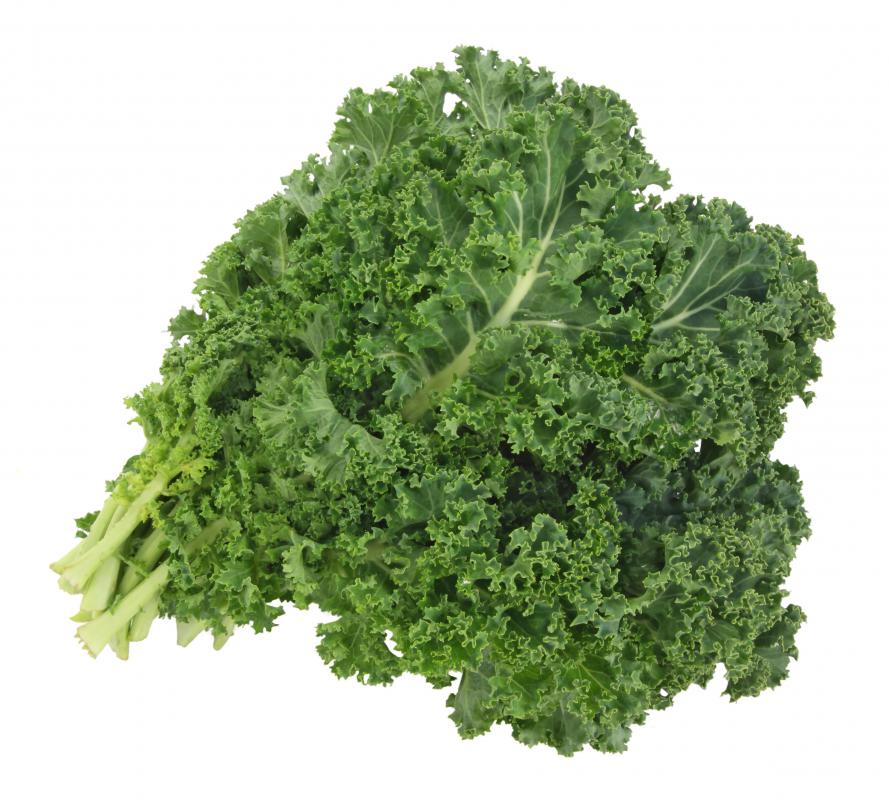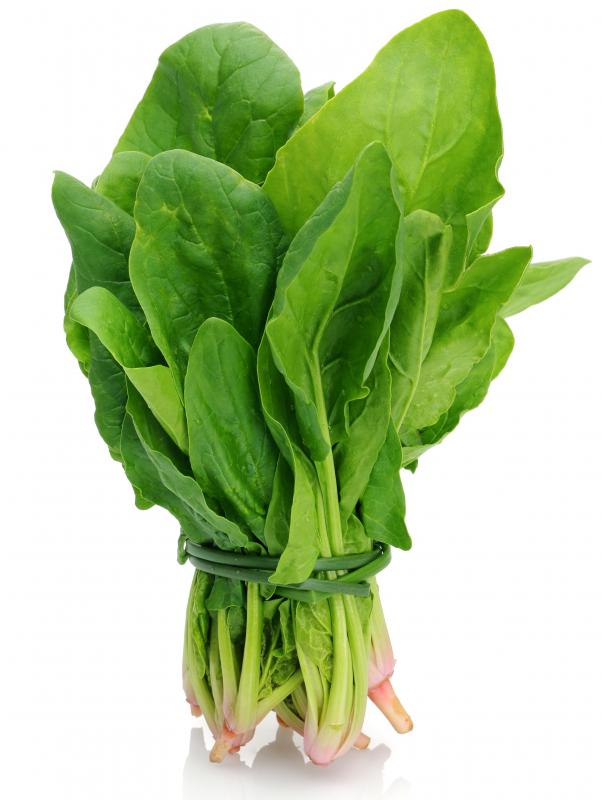At TheHealthBoard, we're committed to delivering accurate, trustworthy information. Our expert-authored content is rigorously fact-checked and sourced from credible authorities. Discover how we uphold the highest standards in providing you with reliable knowledge.
What Is the Antidote for Coumadin?
Coumadin®, the brand name of warfarin, is an anticoagulant medication taken by patients who are prone to deep vein thrombosis (DVT) or other vascular disorders. Vitamin K, a fat-soluble vitamin that the body stores in limited quantities, is the antidote for Coumadin® overdose; it also contributes to vascular and bone health. Patients should avoid foods that contain vitamin K while taking the medication. Coumadin® patients should have a medical alert on their persons in case problems arise during therapy, so the antidote can be administered quickly.
An antidote acts in opposition to a substance, reversing its effect. The administration of vitamin K as an antidote for Coumadin® is usually performed orally, unless bleeding is critical. In this case, the antidote is administered intravenously, slowly at 5 to 10 milligrams over a period of thirty minutes. A transfusion of plasma is also given to replace fluids lost in heavy bleeding.

Vitamin K enables clotting factors in the blood to work properly. Without it, the proteins don't aggregate and the risk of hemorrhage rises. The body doesn't stockpile much of the vitamin, so a process called the vitamin K cycle reuses it. Coumadin® disrupts the cycle and causes K deficiency, which inhibits the formation of DVT and other thrombi. Regular testing for prothrombin time may catch an overdose before it becomes serious, so healthcare providers can adminster the antidote for Coumadin®.

The balance is tricky to maintain, and patients taking Coumadin® ideally should not ingest more than 90-120 mcg per day of vitamin K-rich foods or supplements. A warfarin overdose occurs if the patient takes too much, or there is weight loss while on the medication. Symptoms of an overdose include excessive bruising, blood in the urine or stool, and abnormal bleeding from any external wounds, the nose or gums. This is a medical emergency requiring immediate intervention and administration of the antidote for Coumadin®.

Besides the clotting issue, vitamin K may contribute to bone mineralization. Several proteins dependent on K have been identified, including osteocalcin, matrix Gla protein (MGP), and protein S. Osteocalcin works with vitamin D, and may involve K as well. Another vitamin K protein identified in 1993, Gas6, may have something to do with cell growth. Dietary K can be found in spinach, kale, broccoli, and olive and canola oils.

Healthcare providers often recommend avoiding foods rich in vitamin K during warfarin therapy since it can render Coumadin® ineffective. Patients must be monitored regularly to ensure the level of the medication does not go too high, putting them at risk for serious bleeding. They should also wear a medical alert bracelet or pendant and carry a medical alert card with them at all times. If administered quickly, the antidote for Coumadin® can reverse an overdose before fatal bleeding occurs.
AS FEATURED ON:
AS FEATURED ON:


















Discussion Comments
@Grivusangel -- That doctor knows what he's talking about. My sister ended up in the hospital with internal bleeding because she was taking ibuprofen for her arthritis, and decided it wasn't working well enough, so she took aspirin, too. It relieved the pain, but she started bleeding internally because the two meds together thinned her blood too much.
Her GI doctor had a talk with her about mixing medication and how she could have gotten herself into real trouble. As it was, she had to have three pints of blood in the ER. Her hemoglobin was way, way too low. She had to have a Vitamin K infusion, too. It was nuts. I thought she had better sense than that.
Most doctors want patients on Coumadin to come in at least once a month for a pro-time, which tests the blood's clotting ability.
I know my mom got too much Coumadin once (dosage mix-up), and in addition to Vitamin K, they gave her packed red cells to help amp up her blood volume.
After that, her doctor said she could take a regular aspirin (as opposed to a baby aspirin) every day to help thin her blood a little, that it would probably do as well as the dose of Coumadin she had been on, and wouldn't thin her blood too much. The one drawback to that is she can't take NSAIDs while she's on the aspirin regimen because of the risk of internal bleeding.
Post your comments